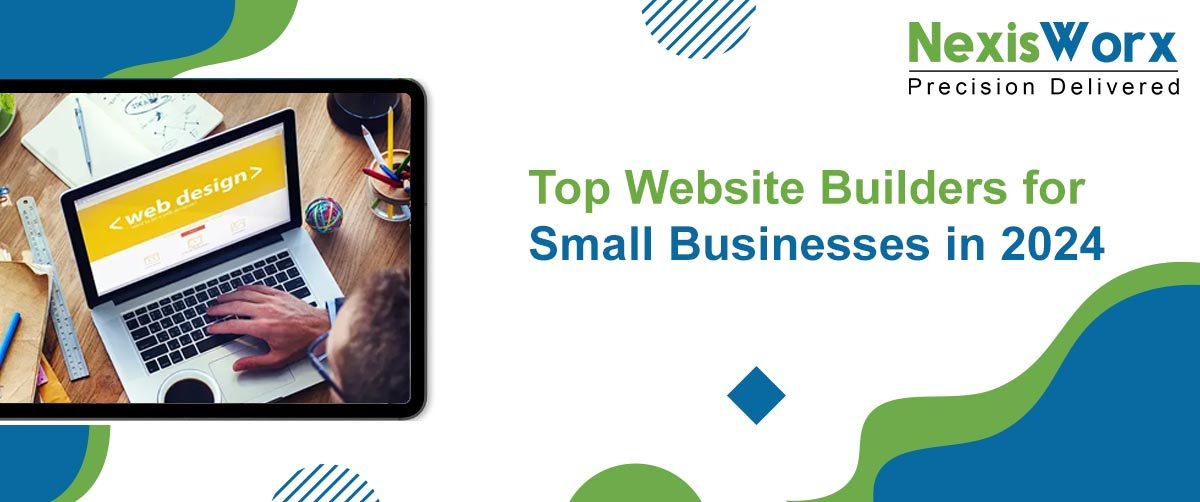A website builder is a powerful platform that enables users to create and design websites without needing coding expertise. These tools simplify the process by offering drag-and-drop interfaces, customizable templates, and built-in hosting. They often come with additional features like domain registration, SEO tools, and analytics to further enhance your website’s functionality.
Key Features to Consider When Choosing a Website Builder
- Drag-and-Drop Interface: Enables easy design and arrangement of website elements.
- Templates: Pre-designed layouts that you can customize to match your brand.
- Customization Options: Adjust colors, fonts, and images to align with your business identity.
- Responsive Design: Ensures your site works well on all devices, including mobile.
- E-commerce Capabilities: Simplifies setting up online stores and processing payments.
- SEO Tools: Helps optimize your website for better search engine visibility.
- Analytics and Reporting: Provides insights into website performance to help improve strategies.
- Customer Support: Offers assistance through various channels like live chat, email, and phone.
Why Website Builders Are Essential for Small Businesses
1. Cost-Effectiveness
Website builders offer affordable plans, reducing development costs and making professional websites accessible to small businesses with limited budgets.
2. Ease of Use
With intuitive interfaces, website builders allow business owners to create and manage websites without needing technical expertise or coding knowledge.
3. Professional Appearance
Website builders provide high-quality templates and customization options that ensure your business has a polished online presence.
4. Functionality and Flexibility
As your business grows, website builders offer scalable features and integration options to accommodate evolving needs, such as adding an online store or blog.
5. Time Efficiency
The quick setup and ease of updates save time, allowing you to focus on other critical aspects of your business while maintaining a fresh, up-to-date website.
6. Enhanced Online Presence
Built-in SEO tools and e-commerce features can boost your website’s visibility and reach, driving more traffic and sales.
7. Customer Engagement
Interactive features, content management, and email marketing options help you engage with customers and build lasting relationships.
The Importance of a Professional Website
- Online Presence and Visibility: Operates 24/7, reaching a global audience.
- Credibility and Professionalism: Establishes trust with customers and makes your business stand out from competitors.
- Marketing and Sales: Serves as a key digital marketing tool and acts as a primary sales channel.
- Customer Convenience: Makes it easy for customers to access business information and services at any time.
- Data Collection and Insights: Gathers valuable data that informs marketing and business decisions.
- Building Relationships: Fosters engagement through content, offers, and direct communication.
- Cost Efficiency: Reduces operational costs compared to traditional brick-and-mortar stores.
- Adaptability: Quickly adapts to changing market trends and customer needs.
Top Website Builders for Small Businesses in 2024
1. Wix
- Features: Drag-and-drop editor, customizable templates, e-commerce tools, SEO capabilities.
- Pros: High customization, extensive app marketplace.
- Cons: Overwhelming options, difficult to switch templates.
- Ideal For: Creative freedom and diverse business needs.
2. Squarespace
- Features: Elegant templates, user-friendly interface, integrated e-commerce.
- Pros: High-quality design, strong customer support.
- Cons: Limited customization, higher cost.
- Ideal For: Design-focused businesses and bloggers.
3. Shopify
- Features: Comprehensive e-commerce tools, product management, payment processing.
- Pros: Robust e-commerce capabilities, excellent support.
- Cons: Higher cost, limited customization without coding.
- Ideal For: E-commerce businesses.
4. Weebly
- Features: Drag-and-drop editor, basic e-commerce, SEO tools.
- Pros: User-friendly, affordable pricing.
- Cons: Limited design flexibility.
- Ideal For: Simple, budget-friendly websites.
5. WordPress (with Elementor)
- Features: Customizable themes, extensive plugins, scalable design.
- Pros: Unlimited customization, strong SEO tools.
- Cons: Steep learning curve, requires maintenance.
- Ideal For: Content-heavy sites and scalability.
6. Zyro
- Features: AI-driven tools, basic e-commerce, affordable pricing.
- Pros: Easy to use, quick setup.
- Cons: Limited customization.
- Ideal For: Budget-conscious users and quick setups.
Comparative Analysis of Website Builders
| Feature | Wix | Squarespace | Shopify | Weebly | WordPress | Zyro |
|---|---|---|---|---|---|---|
| Ease of Use | High | Medium | Medium | High | Low | Very High |
| Design and Customization | High | High | Medium | Medium | Very High | Low |
| E-commerce Features | Good | Medium | Excellent | Basic | Medium | Basic |
| SEO and Marketing Tools | Strong | Medium | Strong | Medium | Strong | Medium |
| Customer Support | Excellent | Excellent | Excellent | Good | Medium | Good |
| Pricing | Medium | High | High | Low | Low | Very Low |
| Hosting & Domains | Included | Included | Included | Included | Self-hosted | Included |
| Security Features | SSL Included | SSL Included | SSL Included | SSL Included | SSL Included | SSL Included |
Conclusion
Each website builder has its own set of advantages depending on your business needs. Wix and WordPress (with Elementor) offer flexibility and extensive customization, while Shopify is best suited for e-commerce. Squarespace excels in design, Weebly is ideal for budget-conscious beginners, and Zyro offers a quick, cost-effective solution. Evaluate your business requirements—whether it’s creative freedom, scalability, or ease of use—to select the best website builder for your online presence.



